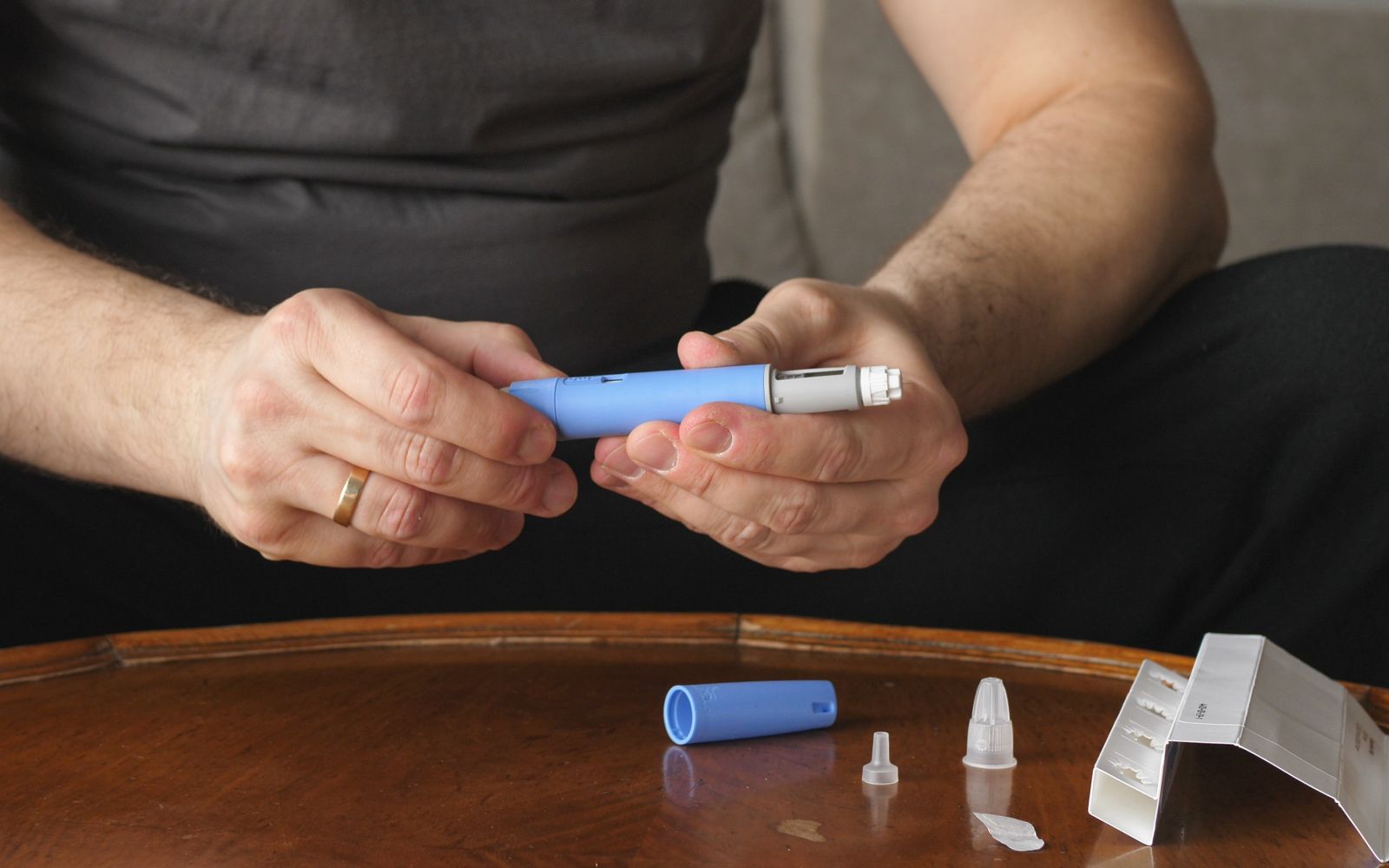Better than Mounjaro? New Drug Sees Highest Weight Loss Results Seen in Studies Yet
By Anna BrooksArvind Sommi
 Clinical trial participants taking retatrutide for obesity experienced an average of 24% in body weight reduction over 48 weeks. Lead scientists shared their findings at the ADA’s 83rd Scientific Sessions in San Diego.
Clinical trial participants taking retatrutide for obesity experienced an average of 24% in body weight reduction over 48 weeks. Lead scientists shared their findings at the ADA’s 83rd Scientific Sessions in San Diego.
A new medication by Eli Lilly called retatrutide – a GIP/GLP-1/glucagon receptor triagonist – had significant weight loss effects in clinical trials for people living with obesity.
In a phase 2 trial of obesity, the experimental drug helped study participants lose up 24% of their body in less than a year. This indicates that retatrutide could be more effective than Mounjaro (tirzepatide), another Lilly drug that showed 21% weight loss in trials.
What’s new about retatrutide is it also includes the hormone glucagon. You might be thinking: wait, doesn’t glucagon normally increase blood sugar?
“The current view has insulin and glucagon sort of faced off,” said David D’Alessio, chief of the division of endocrinology and metabolism at the Duke University School of Medicine, in a panel at the ADA’s 83rd Scientific Sessions. “It’s a line of scrimmage pushing back and forth at counter purposes to keep things in balance.”
However, when combined with a GLP-1, glucagon agonists apparently have a synergistic effect and supercharge the glucose-lowering effects of the GLP-1 drug. This was seen in a groundbreaking study led by Ania Jastreboff, an endocrinologist and director of the Yale Obesity Research Center.
The 48-week trial included 338 participants with obesity (but not diabetes) who were given a once-weekly injection of retatrutide. Participants were randomly assigned doses of 1 mg, 4 mg, 8 mg, and 12 mg. At 24 weeks, those on the highest dose saw almost 18% in weight loss compared to a placebo. By 48 weeks, the same group had lost nearly a quarter of their body weight.
When the drug was discontinued, Jastreboff said participants still continued losing weight. Those with a body mass index (BMI) over 35 had an even steeper decline in weight loss, showing the efficacy was greater for people with more severe obesity.
“We're all here because we want to help our patients lead healthier lives by treating one disease, the disease of obesity,” said Ania Jastreboff, an endocrinologist and director of the Yale Obesity Research Center.
While the study didn’t include people with diabetes, it did include those with prediabetes. Of the 36% of participants who had prediabetes, A1C decreased with 72% reverting to normal blood sugar levels with retatrutide.
Retatrutide has been found so far to be safe and tolerable, having similar side effects to other GLP-1 medications. The most common adverse effects are gastrointestinal issues like nausea and vomiting. Side effects were mostly related to rapidly increasing the drug dose at the start of the clinical trial.
Another phase 2 study led by Julio Rosenstock, clinical professor of medicine at the University of Texas Southwestern Medical Center, looked at retatrutide in people with type 2 diabetes. The results showed that one-third of patients were able to achieve normal glucose levels. On doses of 8 mg and 12 mg retatrutide, participants experienced 17% weight loss at 36 weeks.
“This is really a ‘Wow’ kind of a reaction because we haven't reached this degree of weight loss in people with type 2 diabetes before,” said Rosenstock.
Right now, tirzepatide is the gold standard for weight loss. With these promising new findings, retatrutide could represent a whole new generation of treatments for weight loss management.
“We know that tirzepatide is the King Kong of the GLP-1s,” said Rosenstock. “And when I look at retatrutide, I think that there is no question that Godzilla is smiling."
Learn more about weight loss drugs here:









